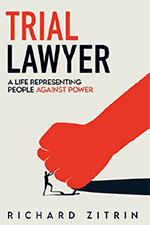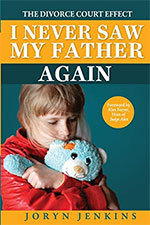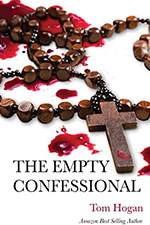 VERDICT: Touchdown!
VERDICT: Touchdown!
Trial Lawyer: A Life Representing People Against Power
By Richard Zitrin (Toronto: Political Animal Press, 2022). 362 pgs. $29.99. Order, www.amazon.com.
Reviewed by Dianne Post
This very engaging book combines ethical issues with trial practice representing the most vulnerable people – mostly in criminal law but a few civil cases as well. Any trial lawyer will tell you that representing clients often means questioning the ethical requirements of a flawed justice system versus our own grounding in fairness and morality. The author stepped into his first case before he was even a lawyer (San Quentin Six – George Jackson shooting) as a liberal suburban white boy and emerged a radicalized adult activist.
Examples abound of the many things we should have learned in law school about client trust, making a record, discovery, witnesses, listening, jury selection, opening, closing, direct, and cross. Because powerful people have the money, lawyers representing people with fewer resources scratch for the facts and sometimes the law and must be very creative to go that extra mile. Zitrin’s stance is that if you take a case, then you must do what it takes to win it. It might not be the most important case you have, but it is the most important case the client has.
The trial lawyer representing people against power must know the law, the procedure, the facts, the individuals, and every weakness better than anyone else. Ethically, when political goals conflict with a client’s needs, the client must take priority.
Zitrin does not skimp about the stress and pressure in a trial practice. Trial practice is not for sissies. We must exercise self-care. My first big trial, I lost 20 pounds in a week. My last big trial, I gained 20 pounds in a week.
The stories of Zitrin’s wins, losses, and surprises are engrossing, some funny, some sad. Experienced attorneys warned me not to challenge judges – poppycock. I didn’t listen, and Zitrin suggests that you don’t either. When the judge or authority is wrong, fight on. He minces no words for overzealous prosecutors but he harpoons lazy or unethical defense attorneys, too.
Trial practice involves some inevitable amount of gamesmanship, brinksmanship, and theatre. Zitrin discusses how strategy melds with ethics and justice and which elements are most fragile. He notes that during his more than 40 years as a lawyer, there have been some improvements, but the criminal justice system has gotten more regressive and repressive overall.
For trial lawyers, this book is a treat. For other lawyers, it’s so much fun, you’ll wish you were a litigator.
Dianne Post, U.W. 1979, represented battered women and molested children for 18 years and then transitioned to international work on violence against women.
 VERDICT: Not for Me, Maybe for You
VERDICT: Not for Me, Maybe for You
The Divorce Court Effect: I Never Saw My Father Again
By Joryn Jenkins (Tampa, FL: Open Palm Press, 2015). 220 pgs. $19.95. Order, www.amazon.com.
Reviewed by Melinda Gustafson Gervasi
Storytelling, as art, aims to make sense of our world. Stories date back approximately 30,000 years to the cave drawings in Lascaux and Chavaux, France. Stories allow a narrator to explain our world in a powerful and meaningful way that goes beyond mere charts, graphs, and numbers. Through the use of stories gathered over the course of her career in law, the author Joryn Jenkins paints a picture of the collaborative divorce process from beginning to end, pointing out benefits and challenges along the way.
Want to Review a Book?
Please request a book and writing guidelines from the Wisconsin Lawyer managing editor at wislawmag@wisbar.org. Reviewers may keep the book reviewed. Reviews of about 500 words are due within 45 days of receiving the book. Reviews are published, space permitting, in the order received and may be edited for length and clarity.
Organized into 15 chapters, I Never Saw My Father Again strives to use the power of storytelling to explain an alternative to divorce court, which can be time consuming, costly, and emotionally destructive. The book’s chapters address a variety of topics: why families with children do not belong in court, interviewing a collaborative practitioner, the one-coach versus the two-coach model, and communication.
Jenkins explains in the fifth chapter that collaborative divorce is not “cooperation.” Instead, it is two people working with a team of neutral professionals alongside each of their own attorneys, where they all join forces to brainstorm options to dissolve the marriage. Moreover, on this path, attorneys do not take sides but counsel their clients to identify goals and interests.
Overall, the book did not pull together the stories as well as it might have. The narratives were compelling but at times seemed to focus more on traditional divorce scenarios rather than a collaborative process. Identifying the intended audience was also a bit confusing and muddled. Some sections were aimed at the legal professional, such as how to build a collaborative team, whereas other sections instructed a potential client on how to prepare for divorce or qualities to look for when hiring legal counsel.
Although this book was not a good fit for me, it might appeal more to a reader with a family law practice. One positive takeaway from the book was the reinforcement of how powerful a well-told story can be when explaining a concept to a layperson. Attorneys often must translate law into “plain English” for clients, so crafting a well-told story is a tool we should all use.
Melinda Gustafson Gervasi, U.W. 2001, operates a solo practice in Madison, where she has focused on estate planning and probate law for 17 years. She also holds a master’s degree in public administration from the University of Southern California.
 VERDICT: Not for Me, Maybe for You
VERDICT: Not for Me, Maybe for You
The Empty Confessional
By Tom Hogan (Austin, TX: Laughing Dog Publishing, 2022). Fiction. 282 pgs. $18.95. Order, www.amazon.com.
Reviewed by Laurel C. Montag
TheEmpty Confessional embarks on the lofty task of covering some of the complicated and multifaceted scandals within the Catholic Church. Tom Hogan does so, in his novel, through the eyes of Father Greg Russell, a young priest stationed in a small Pittsburgh community.
I was excited to dive into TheEmpty Confessional because the inner workings and coverups of the Catholic Church, particularly those pertaining to sexual abuse, intrigue me on both a legal and an ethical level. On the plus side, the novel raises interesting questions about the limits of confidentiality, introduces thought-provoking discussions of theology in a modern light, and challenges our traditional views of “justice” when the judicial system and bureaucracy fail victims.
However, the majority of the book speaks less to the systemic injustices of the Catholic Church and more to a young priest’s struggle with secularism – including his relationship with alcohol and sex, his moral duties, and his role in retribution on behalf of his parishioners. The book walks the line between Sunday School charm, and quasi-priest-spy novel, as the narrative follows a “vigilante” priest, who can’t help but take matters into his own hands to violently serve justice on pedophiles, rapists, and abusers.
Toward the end of the novel, the focus turns from Father Russell’s personal retribution to efforts to expose pedophilic priests in the community. However, this discussion seems a bit rushed and less developed than the rest of the book. While the novel’s action scenes are graphic and entertaining, the cheesy dialogue (for example, Detective Carla Jessup’s no-nonsense banter) cheapens the setting a bit.
Overall, TheEmpty Confessional was an entertaining read with thought-provoking subject matter and discussions. Although the book was not what I expected, and left me wanting a bit more, Hogan’s explanation of controversial, traditional religious concepts, in a modern context, is impressive and kept me turning the pages.
Laurel C. Montag, Marquette 2022, practices with DeWitt LLP in Brookfield.
» Cite this article: 95 Wis. Law. 50-51 (December 2022).
